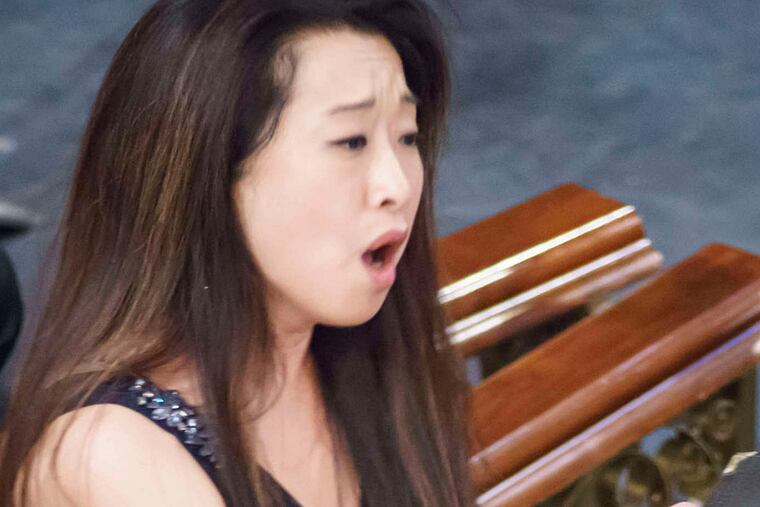Review: Musical twofer on a busy Sunday afternoon
Pope Francis has long since departed from Philadelphia, but the concert organizations that stayed out of his way now have season events that seem to be all happening at once. Call it pope overspill.

Pope Francis has long since departed from Philadelphia, but the concert organizations that stayed out of his way now have season events that seem to be all happening at once. Call it pope overspill.
With staggered Sunday-afternoon start times, you could hit Chamber Orchestra of Philadelphia at the Kimmel Center (skipping two of Vivaldi's Four Seasons in the second half) and catch the Mendelssohn Club of Philadelphia with new artistic director Paul Rardin at Church of the Holy Trinity.
Though Vivaldi's seasons are performed frequently, guest violinist/conductor Scott Yoo led a performance whose descriptive effects and mercurial tempo changes were thoroughly considered yet executed with razor-sharp excitability that's essential to good Vivaldi.
The first half - Astor Piazzolla's 20th-century Four Seasons of Buenos Aires - required its own kind of rhythmic severity (tango doesn't accommodate sloppiness) that more seriously tested the Chamber Orchestra.
Occasional hang-on-for-dear-life moments lent extra heat to Piazzolla, though by the end, the players hit an infectious groove that may have left some listeners checking airfares to Argentina. In the violin solos, Yoo even gave the music's many swooning glissandos endlessly varying character. The toughest assignment went to principal cellist Glenn Fischbach: The innately suave instrument doesn't readily catch the grit of tango, though in significant solo moments, he did so by projecting the music's intense (if self-regarding) melancholy.
The Mendelssohn Club gave a best-foot-forward program that began with challenging, unaccompanied psalms settings by its namesake (Mendelssohn) and a world premiere by Philadelphia composer Kile Smith: a setting of the Agnus Dei text that was initially meant to fill out Mozart's incomplete Mass in C minor K. 427.
Smith's piece was so personal that it was wisely positioned away from Mozart. His tendency toward saturated harmonies was scaled back in favor of something leaner and more visceral, tapping into the text's plea for mercy and peace, suggesting Poulenc's religious works, but in the more brutal era of ISIS. Melodically, the dominating motif distantly recalled the Puccini aria "Vissi d'arte" (about making art in a disillusioning world). Elsewhere, the piece's harmonic ambiguity suggested uncertain faith. Though a bit overlong, it's an important addition to Smith's output.
The Mozart Mass - his most substantial religious work before his Requiem - calls for double soprano soloists, and couldn't have had a more complementary pair than Ah Young Hong, who had exceptional cognitive command of the music, and Barbara Berry, who was more brilliantly operatic. As in the Mendelssohn psalms, the chorus was articulate, musically and textually. Occasionally drifting pitch was one of the few signs that this choir isn't fully professional. Maybe because church acoustics had a homogenizing effect on the choir's sound, Mozart hadn't the strongest interpretive profile. Often in choral concerts, one is happy with solid musical stewardship from a conductor. However, with Yannick Nézet-Séguin now exercising his choral interests with stronger-minded Philadelphia Orchestra performances, Rardin's Mozart left me wanting more.